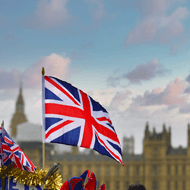2024 Budget Overview: Key Takeaways for the Hospitality Sector
Posted by Emma on 7th Mar 2024 Reading Time:
The hospitality sector expressed disappointment following Chancellor Jeremy Hunt's unveiling of the 2024 Budget. Despite high hopes, the industry's call for a VAT reduction went unheeded. In what is anticipated to be the final Budget before the upcoming general election, the Chancellor outlined his fiscal strategy, with several decisions directly impacting the hospitality industry.

Announcements at a Glance:
Alcohol Duty: The expected end of the alcohol duty freeze in August has been extended to February 2025. Chancellor Hunt highlighted this decision as a measure to support the UK's 38,000 pubs, citing that it would prevent a 3% tax increase. However, the British Institute of Innkeeping (BII) suggests this freeze is insufficient for landlords facing significant inflation across all business areas.
VAT Threshold Adjustment: Starting in April, the VAT registration threshold will increase from £85,000 to £90,000 to alleviate some pressure on small businesses. This marks the first increase in seven years and is intended to exempt tens of thousands of businesses from VAT. Despite this, UKHospitality's Kate Nicholls remarked that a lower VAT rate would have been more effective in spurring growth.
Holiday Let Tax Relief: From April 2025, the tax relief on furnished holiday lettings will be eliminated. This decision targets Airbnb-style rentals to make housing more accessible for local communities, aiming to balance the field between traditional and short-term rental businesses.
Air Passenger Duty Increase: Business-class airfares will see a tax increase, a move expected to generate additional revenue for the Treasury but likely to face opposition from the airline industry. The tax varies, with economy travellers paying less and private jet passengers paying more.
National Insurance Cut: Effective April 6, national Insurance rates will be significantly reduced by two percentage points, benefiting employees and the self-employed. This adjustment means the average employee will save approximately £450 annually.
Noteworthy Omissions
Despite extensive campaigning, the Budget did not address several critical industry issues, including the absence of a VAT rate cut for hospitality and tourism. Furthermore, the cancellation of the VAT rebate for international tourists post-Brexit and the lack of amendments to the controversial upcoming wine tax changes were notable omissions.
What the industry bodies say:
Kate Nicholls, UKHospitality
"The Chancellor missed a real opportunity today to show that he backs hospitality and understands the real pain they are enduring.
"He had a chance to accelerate and unlock hospitality, but instead he has delivered a cut-and-paste Budget, maintaining the status quo which continues to act as a drag on recovery.
"Over the past year, we have had a Budget for growth and an Autumn Statement for investment – neither have delivered because they were not correctly targeted.
"The National Insurance cut earlier this year was intended to boost disposable income to generate growth and didn't have an impact. A different result can't be expected this time around.
"Government needs to take a different approach. It needs to bear down on the never-ending rising costs that are forcing businesses to shut their doors for good – taking away people's livelihoods and robbing communities of a vital asset.
"Increases to business rates and jobs taxes in April will only increase bills further and contribute to inflation, as venues will be forced to pass these costs onto consumers.
"The entire sector was united behind UKHospitality's asks to lower the rate of VAT, cap business rates increases and reduce employer wage costs.
"A lower rate of VAT would have been a bold reform that would drive economic growth, keep prices down and unlock investment in the sector, one that was projected to grow six times faster than the economy as a whole. It would have been good for businesses, the public and the economy.
"Hospitality is a sector proven to be a catalyst for growth across the entire nation, as the foundation of the everyday economy.
"When we perform, the entire economy performs. It's a great shame that the Chancellor has not recognised that today."
The Nationwide Caterers Association (NCAAS),
We are deeply disappointed that the Chancellor has not listened to the tens of thousands of people across the country who have contributed to the overall campaign to lower VAT for the hospitality industry.
Despite widespread calls to reduce VAT to alleviate the financial strain on businesses in this sector, the government's decision to ignore this crucial measure is disheartening to say the least.
• As you know we have been campaigning for:
• Lower VAT for small and micro independent hospitality businesses
• A significant change in the VAT threshold
• A smoothing mechanism to make VAT fairer
The hospitality industry has been among the hardest hit by the ongoing challenges posed by the pandemic and the proceeding, increased inflation, increased energy costs, increased food costs which has culminated in both the cost of living and the cost of operation crises.
A reduction in VAT would have provided much-needed relief, enabling businesses to reinvest in their operations, retain staff, and ultimately contribute to the broader economic recovery.
The omission of this measure from the Spring Budget represents a missed opportunity to support the thousands of businesses and millions of workers who rely on the hospitality sector for their livelihoods. Without targeted assistance, many businesses will continue to struggle, putting jobs at risk and jeopardising the long-term viability of the industry.
The measures that were announced, namely the alcohol duty freeze extension and the VAT threshold rise to £90k / year does little to help the sector – in fact, we believe that the effect will be negligible. Whilst we welcome an increase in the VAT threshold, a £5k increase is completely insufficient to support the short-term requirements to help kick start the hospitality sector and the economy.
We believe that the disconnect between micro businesses in the hospitality sector and the government has further widened between the last autumn statement and today's spring budget. Which leads us to believe that the sector and all that it contributes to the economy and the country has not been heard.
Independent hospitality businesses make our villages, towns, cities, events and festivals what they are. They shape the essence of our communities and they are the heartbeat of hospitality and morale will be severely dampened by today's news.
If the government genuinely understood entrepreneurship and valued the relentless efforts of business owners operating in this exceedingly challenging environment, we believe we would have witnessed a shift today, or at the very least, plans to initiate change in the near future. With an impending election this year it is crucial to persist in advocating for the needs of our industry.
We urge the government to reconsider its stance and take immediate action to support the hospitality industry. A reduction in VAT would not only provide immediate relief but also stimulate consumer spending, boost economic activity, and accelerate the road to recovery.
As we navigate these unprecedented challenges, it is imperative that the government listens to the voices of businesses and acts decisively to support those most in need. We stand ready to work collaboratively with policymakers to assure the vitality and resilience of the hospitality sector for years to come.
We must continue to make sure your voices are heard. Please reach out to your elected MP regarding the essential changes that are needed, we must persist in highlighting these requirements to ensure that the government and elected MPs repeatedly hear and get the message. We will continue to campaign and engage with the government, advising them to reassess their stance on the solutions we have put forward time and time again.
Andrew Crook, National Federation of Fish Friers
"Whilst we welcome the reduction in national insurance to help keep more money in consumers pockets but we feel this budget falls way short of what was needed for my industry and the whole of hospitality."
"Very few hospitality businesses trade anywhere near the £85k threshold and raising it to £90k does nothing to help business who pay all of the tax pass on all of the VAT they collect and provide valuable jobs."
"I do think this Government have run out of ideas and do not listen to what the sector says to them."
While the 2024 Budget presents some minor benefits for the hospitality industry, critical areas of concern still need to be addressed. The sector's future growth and resilience hinge on broader support measures than those announced. We invite you to share your thoughts and reactions to the Budget's impact on the hospitality industry below.

